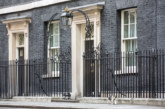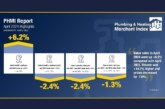
The European Court of Justice (ECJ) has ruled that the United Kingdom contravened the EU VAT Directive in applying a reduced VAT rate to the supply and installation of energy-saving materials. The ruling affects insulation, central heating & hot water system controls, heat pumps, solar photovoltaic & solar thermal panels, and wind & water turbines. The Court ruled they can no longer enjoy a 5% rate to increase uptake by homeowners and landlords – they must be charged at the standard 20% rate.
For three years, the Builders Merchants’ Federation (BMF) has repeatedly urged Whitehall to stand firm and defend 5% VAT since the European Commission referred the UK Government to the European Court of Justice in the summer of 2012.
Commenting on the case, John Newcomb, BMF Managing Director, said: “BMF members are directly affected by this unwelcome judgement because businesses we represent make and deliver the materials and products involved. I am very disappointed the European Court has overturned the merits of having a reduced rate aimed at encouraging people to improve the thermal performance of their home. UK housing stock is among the least energy-efficient in Europe and this flies in the face of a valid incentive to increase the rate of improvement.
It will scupper energy-efficiency policies like the Green Deal and Energy Company Obligation and make home insulation more expensive due to higher VAT”
“Losing this case has major repercussions for BMF members. Ministers are compelled to change UK law to enforce the EU Directive. It will scupper energy-efficiency policies like the Green Deal and Energy Company Obligation and make home insulation more expensive due to higher VAT”.
Here, John pointed out that elevating VAT to the standard 20% rate will affect the Golden Rule calculation and cause many Green Deal energy-saving projects to become financially unviable.
Only last week (1 June), the BMF wrote to the Government again to urge ministers to stand firm against Brussels and defend current arrangements. At the General Election, the Conservatives pledged not to raise Income Tax, National Insurance or VAT in the next five years. Losing this legal action means the new Government faces the prospect of having to put VAT up from 5% to 20%.
John concluded: “We wait to see how ministers will interpret and react to this judgement. They may decide that only social housing tenants can benefit from energy-saving improvements using inputs supplied at the 5% rate. If so, it will mean owner-occupiers will end up paying VAT at the higher 20% rate.”
For more information, visit www.bmf.org.uk
Background information:
This case began over an alleged contravention of the EU VAT Directive by the UK Government that applied a reduced rate to the supply and professional installation of energy-saving materials. The European Commission sent the UK Government a Reasoned Opinion in June 2012 that the Coalition Government replied to in August 2012. Dissatisfied with the United Kingdom’s response, the Commission subsequently decided to refer the case to the Court of Justice.
Article 98 and Annex III (10) of the EU VAT Directive (as amended) allow a reduced rate to apply to “provision, construction, renovation and alterations of housing, as part of social policy” and to the “renovation and repairing of private dwellings”.
Tax relief brought in for environmental reasons is not permitted under EU law. The UK Government had to demonstrate the reduced rate is for social objectives – and that the Green Deal and Energy Company Obligation are social policies intended to combat fuel poverty.
The case rested on whether (or not) the UK applied its reduced VAT rate solely in relation to social housing – which is permitted under the EU Directive – or any housing, irrespective of the residents’ circumstances. The judges decided that extending the scope of the reduced rate to all residential property could not be described as essentially social – and ruled against the United Kingdom.
During the lifetime of the 2010-2015 Coalition Government, the BMF repeatedly raised this pending legal action issue with Whitehall – including on two occasions with the Prime Minister himself in 2013. The BMF also argued that minsters ought to add energy-efficient boilers, double-glazing & low-emissivity glass to the list of products that enjoy the 5% rate – not abolish the list entirely.
The official statement released to the press by the European Court of Justice can be read here (external site)








